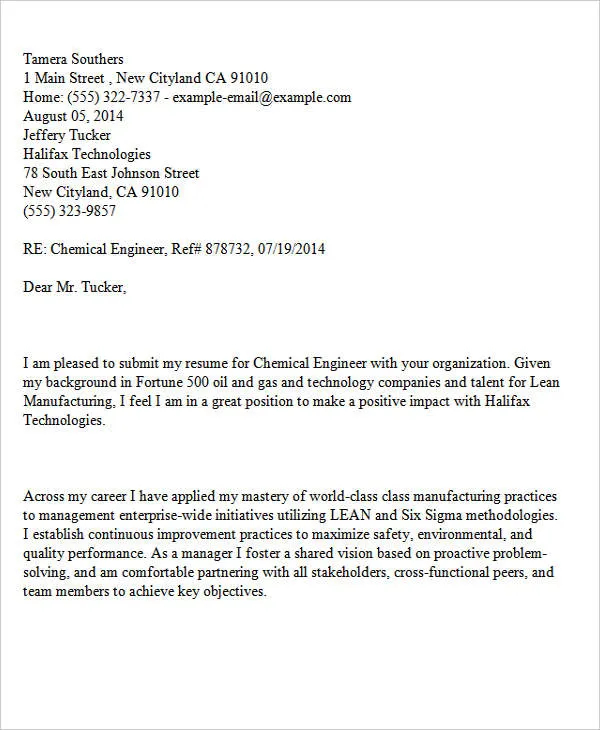Introduction
A chemical engineering cover letter is your first chance to impress a potential employer. It’s more than just a formality; it’s your personal marketing document, showcasing your skills, experience, and enthusiasm for the role. A well-crafted cover letter can significantly increase your chances of landing an interview. This guide provides top 5 tips to help you create a compelling cover letter that stands out from the competition. By following these strategies, you’ll be well on your way to securing your dream chemical engineering position. Remember that a great cover letter complements your resume, providing context and highlighting the most relevant aspects of your qualifications for the specific job. A tailored and well-written cover letter is your secret weapon in the job search process.
Tip 1 Highlight Relevant Skills and Experience
The most crucial aspect of your cover letter is demonstrating that you possess the skills and experience required for the job. Employers want to see a clear connection between your qualifications and the job’s requirements. Start by carefully reviewing the job description and identifying the key skills and experiences they are seeking. Then, highlight your relevant experiences, emphasizing how your past roles have prepared you for the responsibilities of this position. Use specific examples to illustrate your skills, and quantify your achievements whenever possible. This will provide concrete evidence of your abilities and make a stronger impression on the hiring manager. Focus on what makes you a strong candidate, and what differentiates you from other applicants. Make sure to include the skills on your resume too.
Emphasize Technical Skills
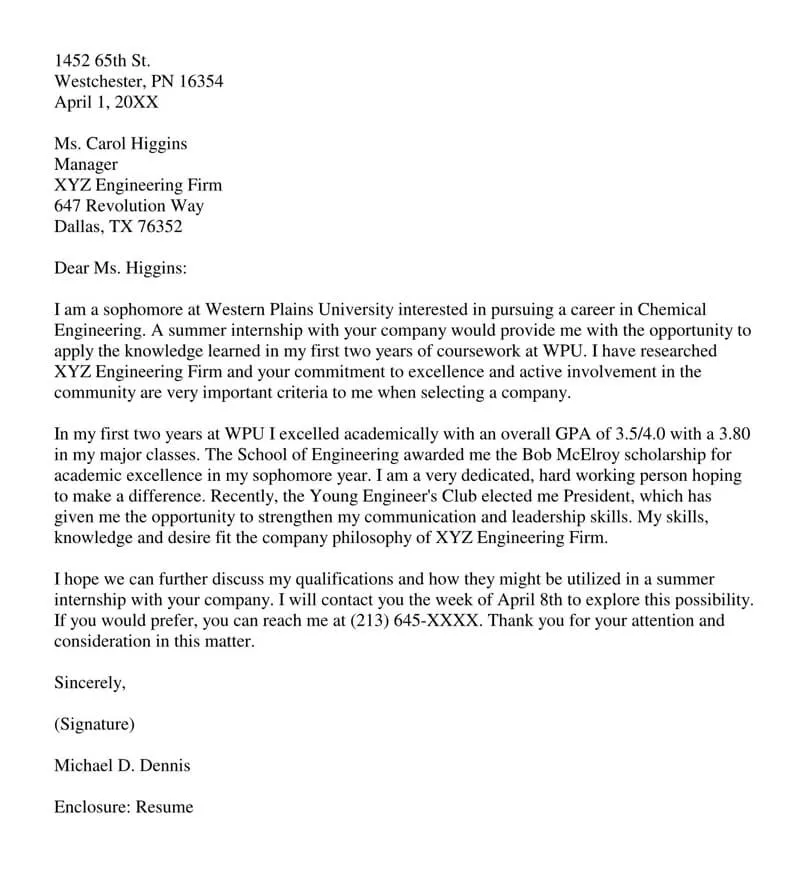
Chemical engineering roles demand a strong foundation in technical skills. In your cover letter, make sure to showcase your proficiency in areas like process design, process control, thermodynamics, fluid dynamics, and chemical kinetics. Mention specific software or tools you are familiar with, such as Aspen HYSYS, MATLAB, or AutoCAD. If the job description mentions specific technical skills, make sure to highlight those. Providing evidence of your expertise, such as project experience where you applied these skills, is crucial. This shows that you not only possess the knowledge but also know how to apply it in practical situations. Tailor this section to the specific requirements listed in the job description.
Showcase Problem-Solving Abilities
Chemical engineers are, at their core, problem solvers. Therefore, your cover letter should demonstrate your ability to identify, analyze, and resolve complex engineering challenges. Describe instances where you successfully tackled problems, providing details about your approach, the methods you used, and the results you achieved. Did you optimize a process, improve efficiency, or solve a production issue? Quantify your accomplishments, using data to showcase the impact of your problem-solving skills. This might include reducing costs, improving production rates, or enhancing safety. Employers value candidates who can think critically and offer effective solutions, so make sure you highlight this aspect of your skillset effectively.
Tip 2 Tailor Your Letter to the Specific Job
Generic cover letters are easily identified and often discarded. To make a positive impression, personalize your cover letter for each job you apply for. This involves researching the company, understanding the specific role, and aligning your skills and experience with their needs. Customization shows that you’re genuinely interested in the position and have taken the time to understand the requirements. It demonstrates initiative and attention to detail, both of which are highly valued by employers. The more tailored your letter, the better your chances of getting noticed and invited for an interview. Avoid copy-pasting from generic templates; instead, invest the time to make each letter unique and relevant.
Research the Company and Role
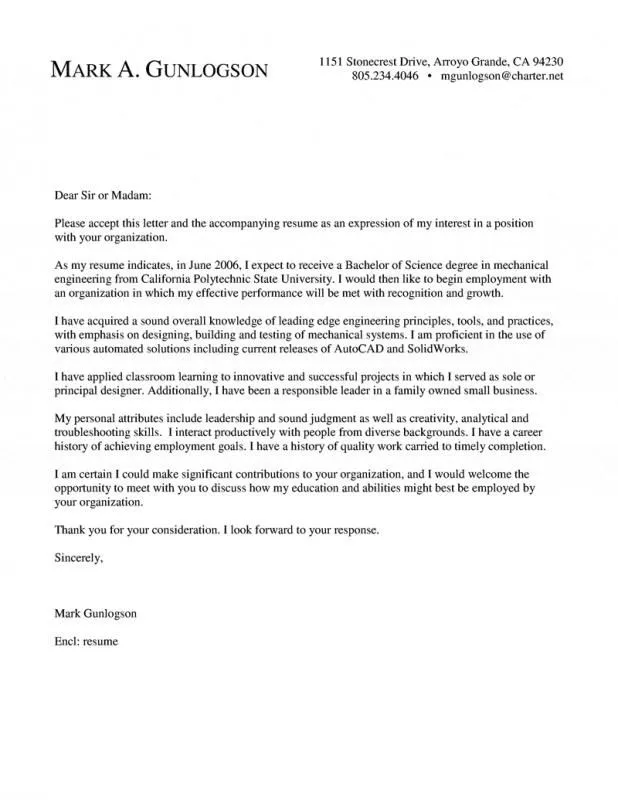
Before writing your cover letter, thoroughly research the company and the specific role you are applying for. Visit their website, read their mission statement, and explore their recent projects and news. Understand their values, their culture, and their current challenges. For the role itself, carefully analyze the job description to understand the required skills, responsibilities, and expectations. This research will inform your letter, enabling you to demonstrate how your skills and experience align with the company’s needs. Show that you understand their business and are interested in contributing to their success. Use specific language and examples that resonate with the company’s goals and priorities.
Address Specific Requirements
The job description is your roadmap. It outlines the key skills, experience, and qualifications the employer is seeking. Your cover letter should directly address these requirements. Identify the most important criteria and explain how your background and skills align with them. Provide specific examples from your past experiences that demonstrate your ability to meet these requirements. If the job requires experience with a particular software or process, make sure to highlight your proficiency. By directly addressing the specific requirements, you make it clear that you are a strong fit for the role. This targeted approach significantly increases your chances of getting noticed by the hiring manager.
Tip 3 Quantify Your Achievements
Vague statements about your skills and accomplishments are less impactful than concrete examples supported by data. When writing your cover letter, always quantify your achievements whenever possible. This means using numbers, percentages, and specific data points to demonstrate the impact of your work. Instead of saying “improved efficiency,” state “improved process efficiency by 15%.” Instead of saying “managed projects,” mention “managed projects with budgets up to $500,000.” Quantifiable achievements provide clear evidence of your capabilities and make a more persuasive argument for why you are the best candidate. By backing up your claims with data, you add credibility and demonstrate your ability to deliver results.
Use Numbers and Data
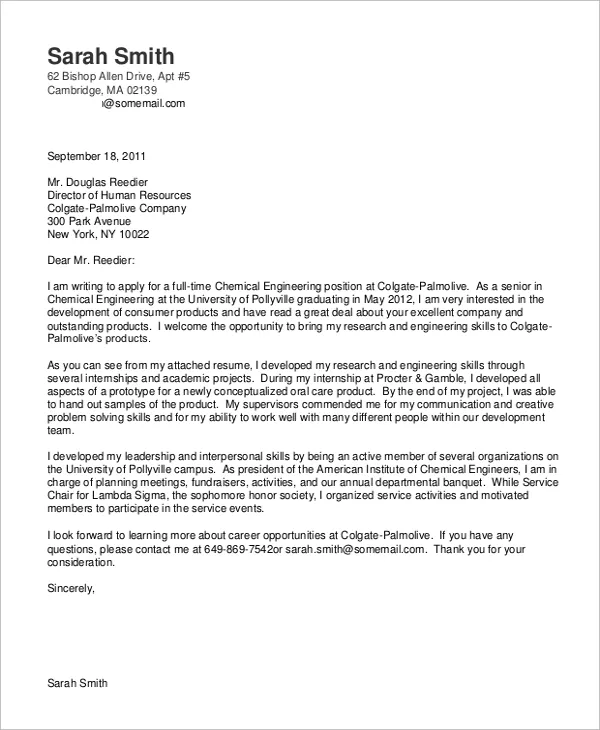
Numbers and data provide tangible evidence of your accomplishments. When describing your previous projects or experiences, include specific metrics to quantify your contributions. This could involve improvements in production rates, reductions in costs, or increases in safety. For example, instead of saying you “reduced waste,” you could say you “reduced waste by 10% through process optimization.” Using data shows that you are results-oriented and can measure the impact of your work. It also demonstrates your analytical skills and your ability to make data-driven decisions. Make sure the data you provide is accurate and relevant to the job requirements.
Provide Specific Examples
Specific examples bring your accomplishments to life and make your cover letter more compelling. Instead of making general statements about your skills, provide detailed examples of how you have applied those skills in the past. Describe a specific project, task, or challenge you faced, and explain how you used your skills to achieve a positive outcome. Mention the specific actions you took, the tools or techniques you used, and the results you achieved. For example, you could describe a time you used Aspen HYSYS to simulate a process and identify areas for improvement, resulting in a significant cost reduction. Specific examples show that you are not just claiming to have skills; you are demonstrating them through tangible actions and results.
Tip 4 Demonstrate Enthusiasm and Passion
Hiring managers want to hire individuals who are genuinely excited about the opportunity and the company. Your cover letter should convey your enthusiasm and passion for chemical engineering and the specific role you are applying for. This is your chance to showcase your personality and explain why you are drawn to the company and the position. Expressing your passion can set you apart from other candidates. Use a positive and engaging tone throughout your letter. Let your personality shine through, but always maintain a professional demeanor. Show that you are eager to learn, grow, and contribute to the company’s success. Conveying your enthusiasm makes you more memorable and shows you are not just looking for a job but a career.
Express Your Interest in the Company
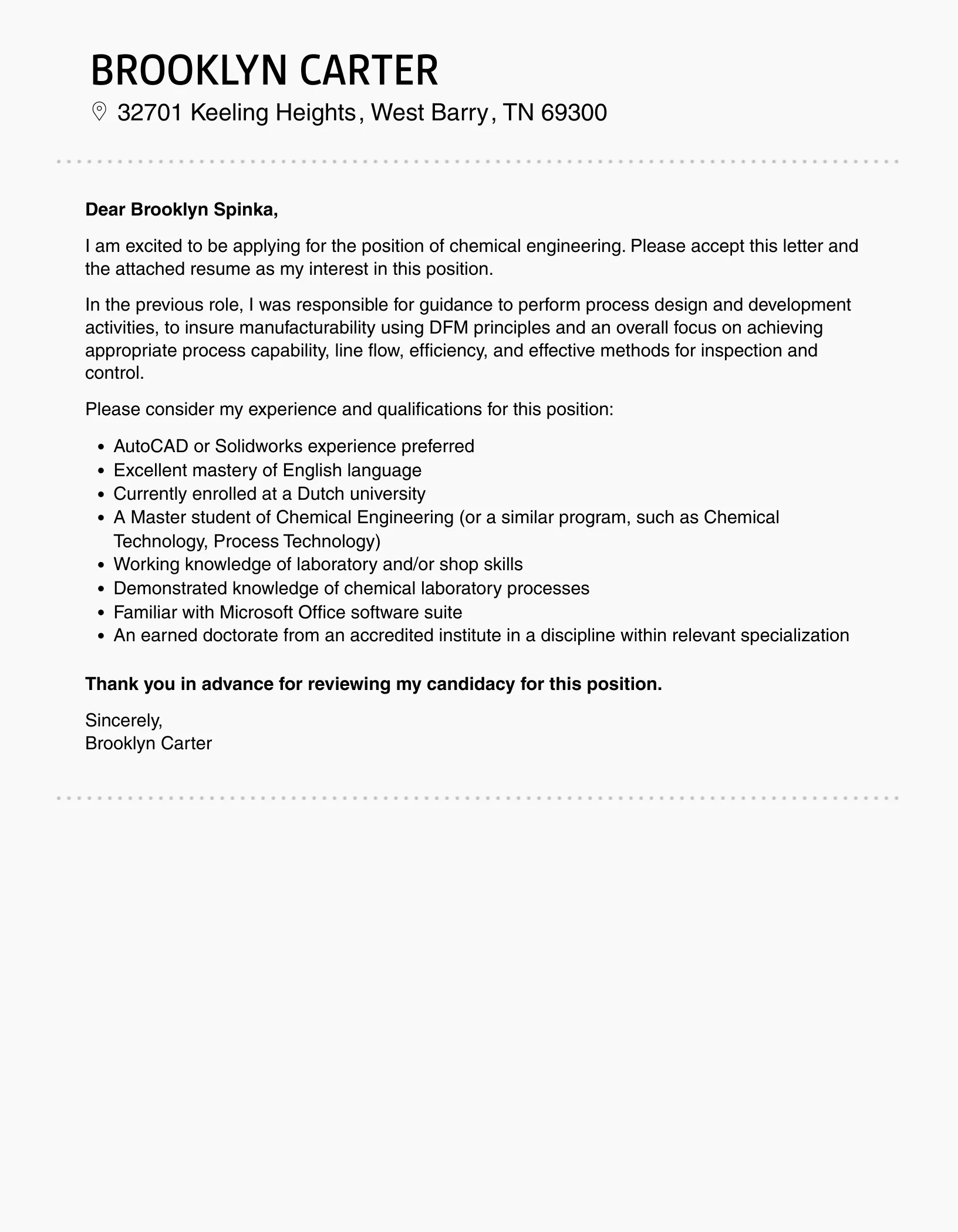
Show that you are interested in more than just a job; you are interested in the company itself. Highlight what specifically attracts you to their mission, values, products, or services. Mention any recent company achievements or initiatives that resonate with you. This shows that you’ve done your research and are genuinely interested in becoming a part of their team. Refer to specific projects, technologies, or industry areas that excite you about working with the company. This will help you stand out from other candidates and make a strong first impression, making it clear that you see yourself as a valuable contributor to their future success. Show that you align with the company’s values and culture.
Show Your Knowledge of the Industry
Demonstrate your knowledge of the chemical engineering industry and your awareness of current trends and challenges. Mention any relevant industry news, publications, or conferences you follow. This shows that you are engaged with the field and committed to staying current. If the company is involved in a specific area of chemical engineering (e.g., sustainable energy, pharmaceutical production), express your interest in that area and mention any relevant knowledge or experience you have. This demonstrates that you are not only interested in the job but also passionate about the wider field of chemical engineering and its potential for innovation and impact. This will make you appear as a well-informed and dedicated candidate.
Tip 5 Proofread and Edit Carefully
A cover letter riddled with errors can undermine your credibility and damage your chances of landing an interview. Proofreading and editing are essential steps in the cover letter writing process. Before submitting your application, carefully review your letter for any grammar, spelling, or punctuation errors. Ensure that your sentences are clear, concise, and easy to understand. Consider having a friend, colleague, or career counselor review your letter as well. A fresh pair of eyes can often catch mistakes that you might have missed. A polished and error-free cover letter demonstrates attention to detail and professionalism, showing that you take the application process seriously. Making sure your cover letter is perfect is the easiest way to impress.
Check for Grammar and Spelling Errors
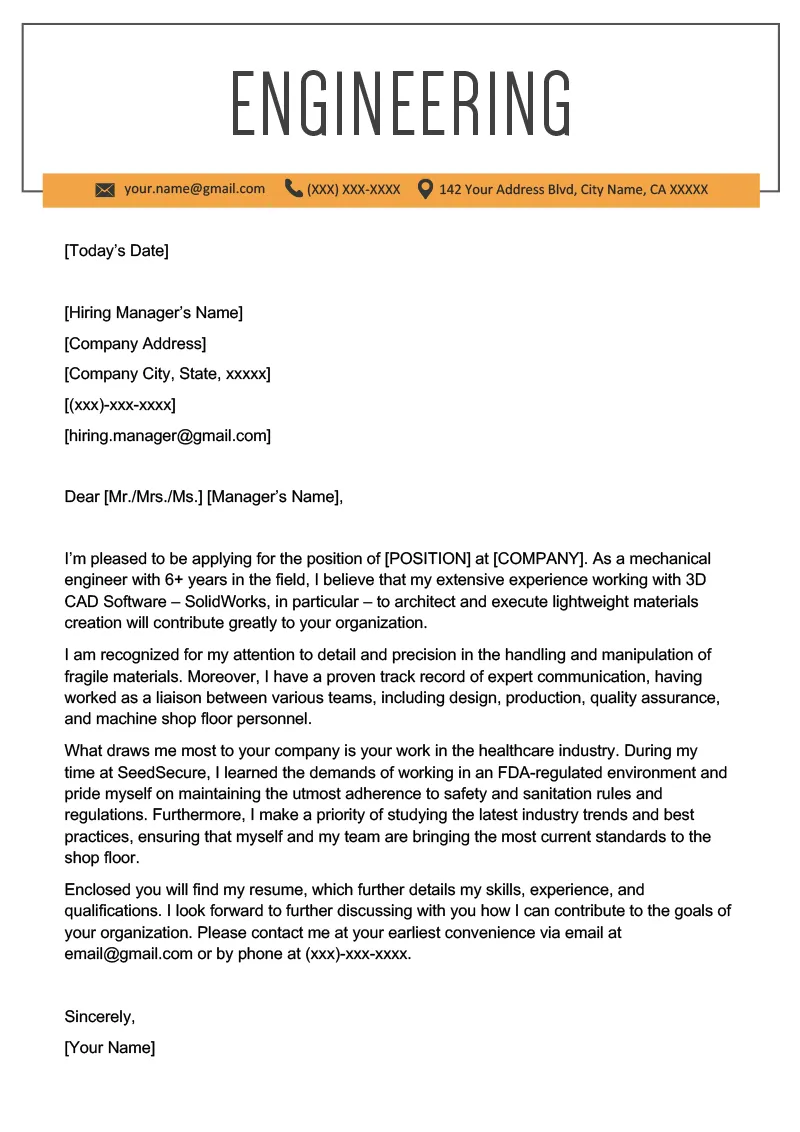
Grammar and spelling errors can create a negative impression and make you appear careless or unprofessional. Before submitting your cover letter, thoroughly check for any mistakes. Use a grammar and spell-checking tool, but don’t rely on them entirely. Proofread your letter carefully, line by line, to catch any errors that might be missed by automated tools. Pay close attention to common mistakes like incorrect verb tenses, subject-verb agreement, and misused words. Ensuring that your cover letter is free of errors is crucial for making a positive impression and demonstrating your attention to detail.
Ensure a Professional Tone
Your cover letter should maintain a professional tone throughout. Avoid using casual language, slang, or overly informal phrasing. Be respectful, courteous, and enthusiastic. Use proper salutations and closings. Maintain a formal tone while expressing your personality and enthusiasm. Your writing should be clear, concise, and well-organized. The goal is to present yourself as a competent and professional candidate who is capable of communicating effectively. A professional tone demonstrates your respect for the hiring process and the company, and it reflects your commitment to your career in chemical engineering.
Conclusion
Writing a compelling chemical engineering cover letter takes time and effort, but it’s an investment that can significantly improve your job search results. By following these top 5 tips – highlighting relevant skills and experience, tailoring your letter to the specific job, quantifying your achievements, demonstrating enthusiasm and passion, and proofreading carefully – you can create a cover letter that captures the attention of hiring managers and sets you apart from the competition. Remember to tailor your cover letter to each specific job, providing concrete examples of your skills and achievements. Your cover letter should make a strong case for why you are the best candidate for the position, and invite the employer to learn more about you. Good luck with your job search!
